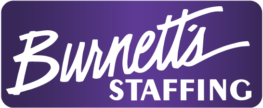 By Sonia Acosta
By Sonia Acosta
Hey you. Yes, you writing the email to your co-worker in a cubicle two feet away from you.
Ever feel like no one talks to each other anymore? We are all guilty. Email is easier, it’s quicker, it helps us keep a paper trail, and well, it’s just what we’re used to in the modern workplace. Ever wonder what a regular workday was like before the advent of email? How did people manage, and what are the dangers of over-relying on this tool we often feel like we can’t live without?
Here are three professionals’ then-and-now email stories to help you appreciate the technology while also being cautious of it.
Productivity gains vs. efficiency losses
Bill Du Val, a lawyer at Slinde Nelson & Du Val Business Law in Portland, Ore., recalls a time when people actually picked up the phone, and, as a common courtesy, usually called a colleague or client’s assistant first.
“As a lawyer of 19 years, I can state without reservation that I am incapable of handling over seven dozen emails every single day,” says Du Val. “An associate can screen some emails for me, but the ultimate filter, unfortunately, still has to be me. In this regard email lessens my productivity.”
Email is characteristic of today’s get it done yesterday, go faster than fast, you’re never quite going fast enough pace. While it might encourage this lifestyle and work pace that is often nearly impossible to keep up with, it also helps us be more efficient.
“The difference between the 1990s and today is that things move more quickly, the primary advantage being the ability to attach documents,” says Du Val. “Here today, there today. Fax machines suck, have always sucked, and will always suck. But I see the Federal Express driver a whole lot less these days.”
What’s gained, what’s lost?
Dianna Booher, author of “E-writing: 21st Century Tools for Effective Communication” and CEO of Booher Consultants in Colleyville, Texas, explains the productivity gains and losses seen from the introduction of email.
Then, in our prior email-less world (gasp!), “Mornings consisted of riffling through your inbox of hand-scribbled notes from your colleagues and phone messages from callers interpreted by an assistant.” Can you imagine it?
“You responded by scribbling the responses and dropping them off in everyone else’s inbox,” Booher recalls. “You wrote lengthy letters to clients, dropped them in the U.S. mail, and waited 7-10 days for a response.”
All letters were official, on letterhead, so everything was written formally. “No mistakes. No sentence fragments.” At this pace, the quick decisions we are accustomed to today were more than hard to come by, she says.
Modern workers, especially those who have never lived in an email-less workplace, could not imagine functioning like this. Still, just as email has solved a lot of our problems, it has undoubtedly created some as well.
“Messages from clients and colleagues come by email, but they are sent and opened around the clock. You are on 24/7,” says Booher. “You write to clients as quickly, briefly, and often as informally as you do colleagues.”
Our emails are often too informal. Messages can become unclear, and decisions can be made too hastily. When email is over-used to replace face-to-face or even phone communication, “People feel anonymous, and grow hostile and rude,” cautions Booher. “People feel isolated and disconnected, and some cannot put their personality on a page. They lose that big plus of personal presence-so much a dynamic in persuasiveness.”
A life more complicated?
Lindy DeKoven, a television executive who began her career as a secretary in the technical services department at CBS Television City 20 years ago, recalls her first encounter with email.
“I actually remember quite vividly being on the phone with an agent at the William Morris Agency,” she says. “They had just gotten email. I had asked this agent a question. Because he didn’t know the answer, he emailed his associate the question. Within seconds, he had a response. I had no idea what email was, or what he was talking about. All I knew was that I wanted it.”
DeKoven also recalls when business was conducted over the phone and in person, when the word processor was considered an amazing tool of efficiency compared to the typewriter.
“At lunch or at the end of the day, we actually got in our cars and relaxed,” she recalls with nostalgia. “There wasn’t the constant interruption of emails, texts, and phone calls. We were able to breathe. To think. To relax.” Once she became an executive, email became a big, unavoidable part of life. “Then there was BlackBerrys and texting, and life had changed for good.”
Use it, don’t abuse it
So what are we getting at? It’s simple. While email can be a great time-saver and efficiency creator, it can also distance you from colleagues and clients. Now we are not suggesting you stop using email. Why, the world might very literally stop if you did that. Just get up and walk over to a co-worker once in a while, pick up the phone instead of sending that one-liner, and get to know people. We know, it’s quite a concept to grasp, but it can and will help you build better relationships at work, so give it a shot, won’t ya?

